
Mr. Tu Cang's simple, cozy house is located quite far from the center of Ho Chi Minh City. The peaceful atmosphere of the rainy April afternoon makes the space even more solemn. He is known as a legend of the Vietnamese intelligence industry, who played an important role in protecting the Fatherland during the years of resistance.
"I'll stay home and raise the kids, wait for you!"
I asked him about the first day he met his wife - Mrs. Tran Ngoc Anh, perhaps one day when the country was still in flames, the years when love could not bloom in the midst of war. In response to my question, he just smiled slightly and looked up at his virtuous wife who can now only be seen through a portrait...
He was born and raised in Long Phuoc village, Ba Ria town, Ba Ria - Vung Tau province. Mrs. Tran Ngoc Anh grew up in Phuoc Hai, a coastal village in Dat Do district, not far from his house. They got married in a "parents arranged marriage" style - before they even had time to fall in love - on a day in mid-March 1946.
At that time, Mr. Tu Cang was not yet 18 years old, and Mrs. Anh was just 17.

The young couple was at the age of “not yet full, not yet worried,” with simple plans for a peaceful, ordinary married life, coming together like any other peasant family. But everything changed when the war broke out, Mr. Tu Cang decided to leave for the war zone, to join the revolution.
One moonless night, while everyone in the family was still asleep, he sat next to his wife on the steps, finding it difficult to say what he was about to say. After a few minutes of silence, he told her that he had to leave to serve the revolution. He explained that if he stayed, he would not be able to protect her, despite the great love and concern he felt for her.
"Honey, in this situation I have to go to the war zone with my brothers. Tomorrow morning, you arrange to return to your parents in Phuoc Hai, then find a way to go to Saigon to work, give birth and raise children... wait for me", Mr. Tu Cang recounted, his voice lowered when mentioning that moment.
On March 4, 1947, Mrs. Anh gave birth to her first child, the only child of the couple. She named her son Nhong - the name of a talking bird, as a symbol of longing and separation. That name, a symbol of birds flying far away, is a promise and memory of a strong, lasting love despite the many challenges that lie ahead.
In 1954, according to the Geneva Agreement, our army was regrouped in the North. On the day he was about to board a ship to leave the South, an acquaintance gave him an envelope, along with a sweater and a photo of Nhong, who was now 7 years old.
In the letter, Mrs. Anh wrote: "Our family is under strict control of the enemy, I cannot see you off. I heard it is very cold in the North, so I knit this sweater for you . "
During his years of studying and building the army in the North, he always kept that precious gift carefully. He read the letters over and over again, memorized them. He carried Nhong’s photo everywhere, showing it off to everyone he met. As for the sweater, at night, he held it to his chest, as if to find the old warmth that Mrs. Anh had given him through that gift.
After 7 years of studying and training in the North, in May 1961, Mr. Tu Cang was promoted to the rank of captain and was selected to return to the South, continuing to fight for 14 years as an intelligence and special forces officer. Those years were an unforgettable part of his life as a soldier, having to face countless challenges, and continuing to be separated from the wife he loved.
29 years of waiting
After 29 years, on April 30, 1975, on the night of total victory, he returned home with his long-hidden nostalgia.
He drove the Jeep with the female commando team into the city center. All the stories, all the memories, all of them poured into him about the small street in Thi Nghe, where Mrs. Anh and her daughter Nhong were waiting. The city gate, like the door of the heart, was just a little bit away from being opened.
Along the way, his heart was pounding, the name "Nhong" echoed in his mind like a familiar sound, a sweet memory that had been engraved in his heart for many years.

Mr. Tu Cang reunites with his family. (Photo: Family documents)
"Palmar! Parrot!" - his passionate call echoed in the night. After a while, the light in the third row was turned on: "Here. Are you back? I knew it, when I heard Palmar calling my name, I knew it was only you!" Mrs. Anh ran out, her voice faltering and broken, unable to contain her emotions.
He said nothing, just rushed to hug his wife. In that moment, the emotions that had been building up for 29 years were finally expressed. A light kiss on her forehead, then a passionate kiss, as if to make up for the years of separation.
In that moment, he remembered the farewell that year, next to the banana grove behind the house, where they exchanged promises, kissed with tears, and then parted in endless anxiety. That kiss, until today, has become an affirmation that that love, that waiting, all had value.
After nearly 30 years, he returned, she was still standing there, waiting for him, just as she had promised from the first day. Mrs. Anh could not hold back her tears, removed his hand, looked up, her eyes filled with tears: "I knew you would return today. My child and I have been looking for you since morning."
The couple walked into the house, and at this time Nhong was also awake. Knowing that her father had returned, and seeing him healthy in his liberation army uniform, she was so happy. He was surprised to see his son waking up a sleeping girl: “Huyen! Huyen! Wake up and greet your grandfather.”
“Ah! You already have a husband and children, my dear daughter”, he said. Hearing that, Mrs. Anh laughed: “She is not a child anymore. I have been gone for 29 years now, so you are 29 years old”.
Little Huyen woke up, somewhat bewildered when she saw her grandfather holding a hat with a 5-pointed star in his hand, then obediently stood up, folded her arms in front of her, and whispered: "I present to you, grandpa. I'm glad you've returned to grandma."
He was moved and hugged his granddaughter tightly, unable to hold back his tears. All those years of fighting, not only were they days away from his wife, but also the absence of moments like this. He had left when Mrs. Anh was pregnant, and now, when he returned, his daughter had grown up, and his grandchild was pressed against his chest.
On the road again
After nearly 30 years of fighting, peace returned, but for Mr. Tu Cang, the mission was never over. The night he returned, his heart was still heavy with the tasks at the border that he could not abandon. The country had been unified, but the life of a soldier was not that easy. Peace, for him, was something that had been exchanged for countless hardships, and now, no matter how much he wanted it, he still had to continue on his journey.
In December 1975, his family reunited for the first time in the atmosphere of Tet. The first Tet after the war, the first Tet he was able to return home, to Mrs. Anh, to his daughter Nhong, to his granddaughter Huyen. It was a moment he had been waiting for for many years. But no matter how excited he was, he still had to leave, because responsibility still called.

On the 28th of Tet, the streets were ablaze with the colors of apricot and chrysanthemum flower stalls. The smell of fresh pork belly, dong leaves, and banana leaves filled the bustling air. People jostled each other, rushing to buy the last ingredients to prepare for the Tet meal. But for him, that only made the upcoming moment of separation even more painful. He wanted to stay, wanted to celebrate Tet with his wife and children, but his duty pulled him away.
Mrs. Anh also did not have time to rest. Although full of anticipation, she was still busy with her year-end work at the bank. Ms. Nhong also tried to take a day off to do some shopping, but because of the long queue, she finally had to ask her daughter Huyen to buy pre-cooked cakes, in order to prepare for New Year's Eve.
On the last day of the year, the small house was bustling with the Tet atmosphere. The door was covered with yellow apricot blossoms, and little Huyen happily ran around with the clay figurines her mother had bought her the day before. Mr. Tu Cang had just returned from the border. Little Huyen rushed out, her eyes shining, and threw her arms around her grandfather's neck: "This year, grandpa will celebrate Tet with grandma and me, right?"
He said nothing but smiled, stroked his grandson's head and gently placed a loving kiss on his forehead. In that moment, all worries and fatigue seemed to disappear, leaving only a warm, peaceful feeling.
Mrs. Anh, hearing him coming home, hurriedly ran up from the kitchen, holding her husband’s backpack. Her eyes were full of worry, her voice trembling as she asked: “Are you going away again? Aren’t you going to stay home to celebrate Tet with me and the kids?”
He looked at his wife, his eyes full of sympathy. "The Pol Pot army is making too much trouble these days. I can only celebrate New Year's Eve with you and your grandchildren. I'll leave tomorrow," his voice dropped. Mrs. Anh sighed, but she understood that it was his job, his responsibility.
On New Year's Eve, Mr. Tu Cang's small house was lit up in a festive atmosphere. Four people - three generations - gathered around a simple but loving meal: braised pork, pickled shallots, sliced sticky rice cake and a pot of chicken soup. These familiar dishes of Tet brought with them the flavors of their homeland, memories and nostalgia.
Although he could not celebrate Tet as fully as usual, because work and responsibilities still kept him away, for Mr. Tu Cang's family, it was the warmest and most complete Tet ever.
At 8am on the first day of Tet 1976, Mr. Tu Cang shouldered his backpack and set off again. Mrs. Anh saw her husband off to the car, her eyes red, her hands unwilling to let go, even though she knew in her heart that it was his responsibility, his duty to continue.
Little Huyen, in Mrs. Anh’s arms, saw that her grandfather was about to leave, and struggled to be held. She did not fully understand the separation, but her innocent eyes seemed to want to hold him back, to hold on to every moment of reunion. The car carrying Mr. Tu Cang gradually disappeared from sight, leaving only Mrs. Anh and her three children standing silently, their hearts filled with longing and questions that could not be asked.
In 1977, when his age and health were no longer as before, Mr. Tu Cang was transferred to Vung Tau, to become the Principal of the Cultural School of Military Region 7.
The love story of Mr. Tu Cang and his wife is a part of history, not only of them but also of soldiers and steadfast wives. Along with the love for the Fatherland, their love is not noisy but lasts through the years.
Mr. Tu Cang's real name is Nguyen Van Tau, born in 1928. He is a Colonel of the Vietnam People's Army Intelligence, former head of the H63 Military Intelligence Group. His wife, Ms. Tran Ngoc Anh, was born in 1929.
By this year (2025), Mr. Tu Cang is 97 years old, Mrs. Tran Ngoc Anh passed away in 2020 due to old age and poor health.
In 2006, Mr. Tu Cang was awarded the title Hero of the People's Armed Forces.
Thy Hue - Vtcnews.vn
Source: https://vtcnews.vn/nuoc-mat-ngay-doan-tu-cua-gia-dinh-huyen-thoai-tinh-bao-tu-cang-ar929610.html










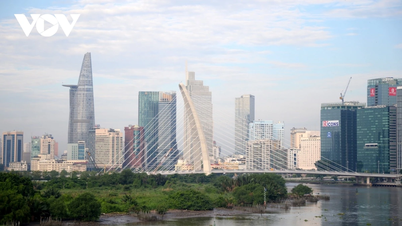

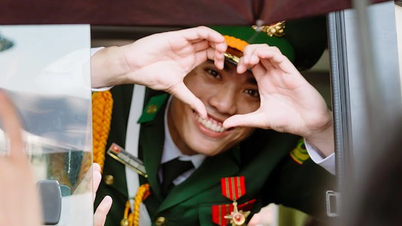
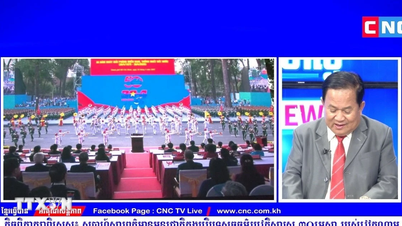

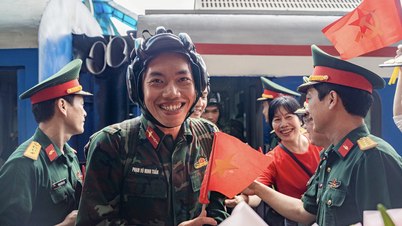

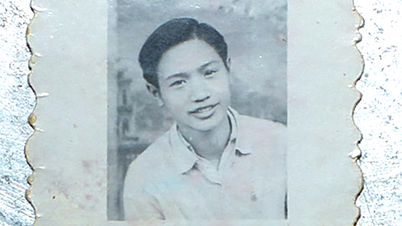
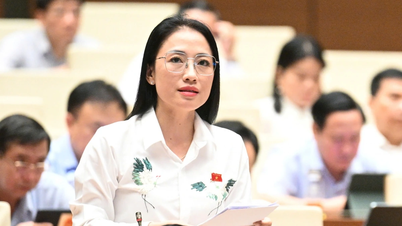
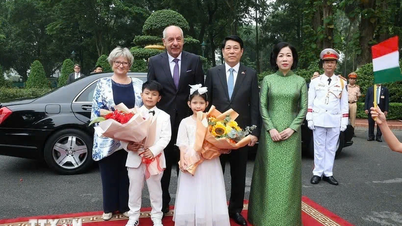
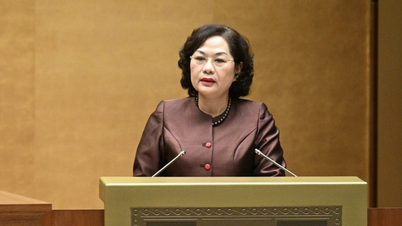

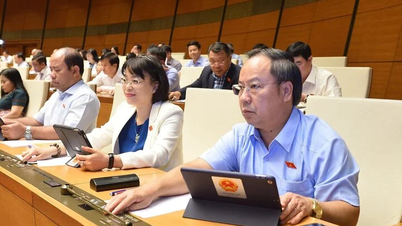
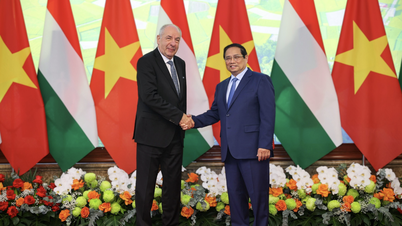

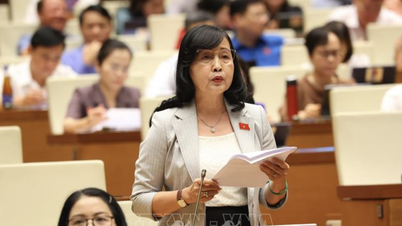






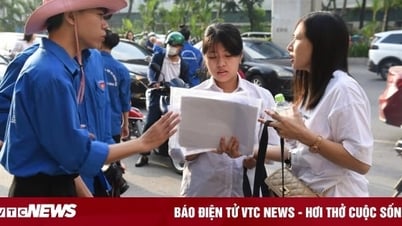

































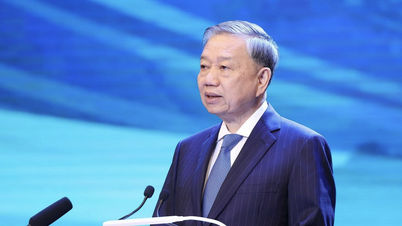
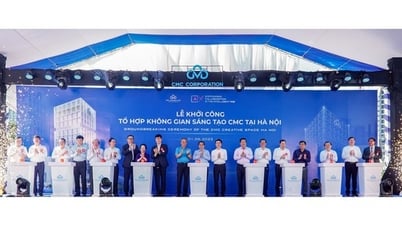








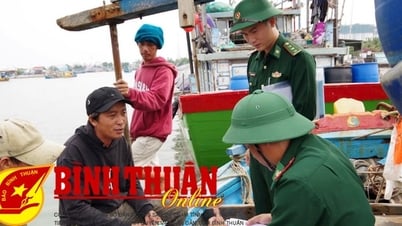

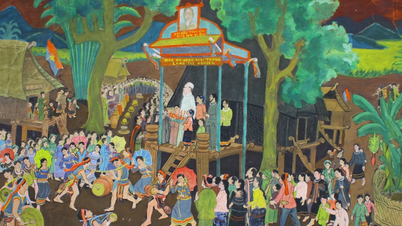
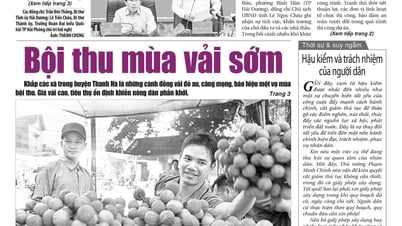

![[Motion Graphics] Things to note in the 10th grade entrance exam in Ha Tinh](https://vphoto.vietnam.vn/thumb/402x226/vietnam/resource/IMAGE/2025/6/2/1862624571b745329fa818efc4888f96)

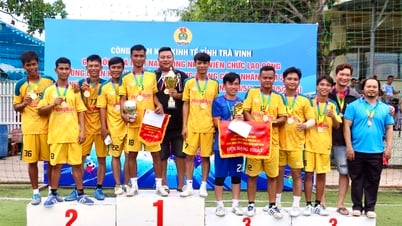
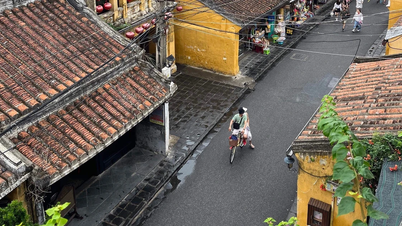








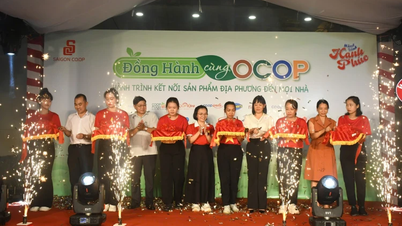



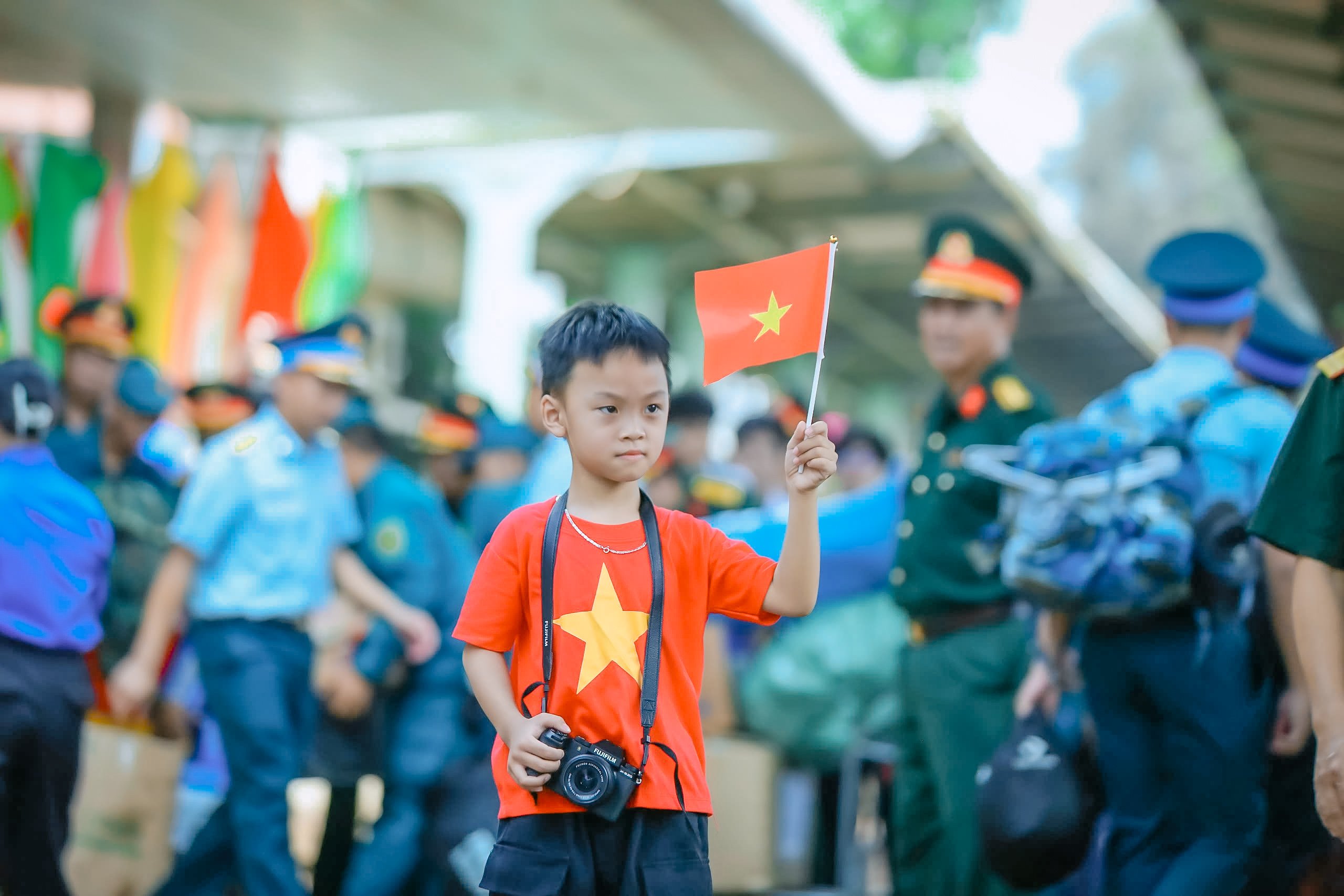



Comment (0)